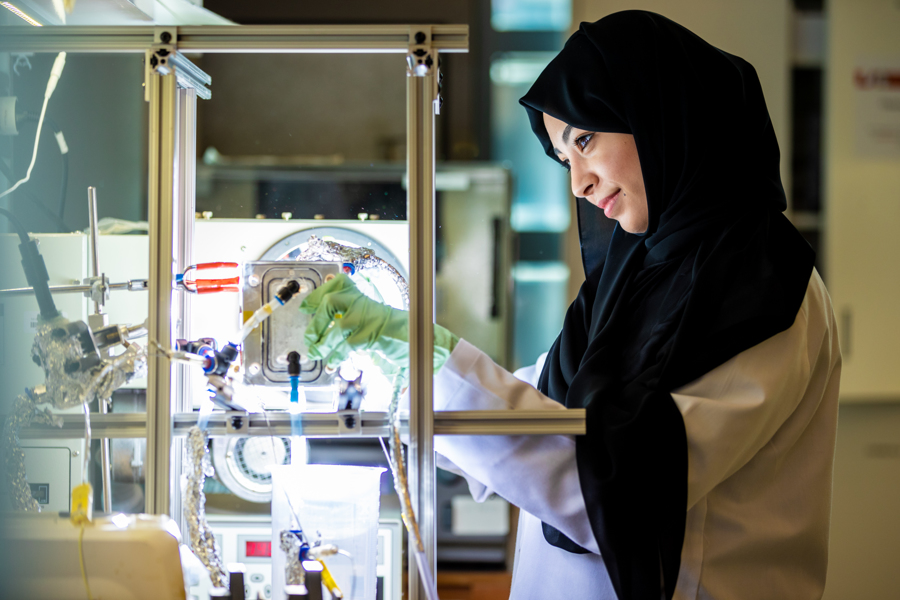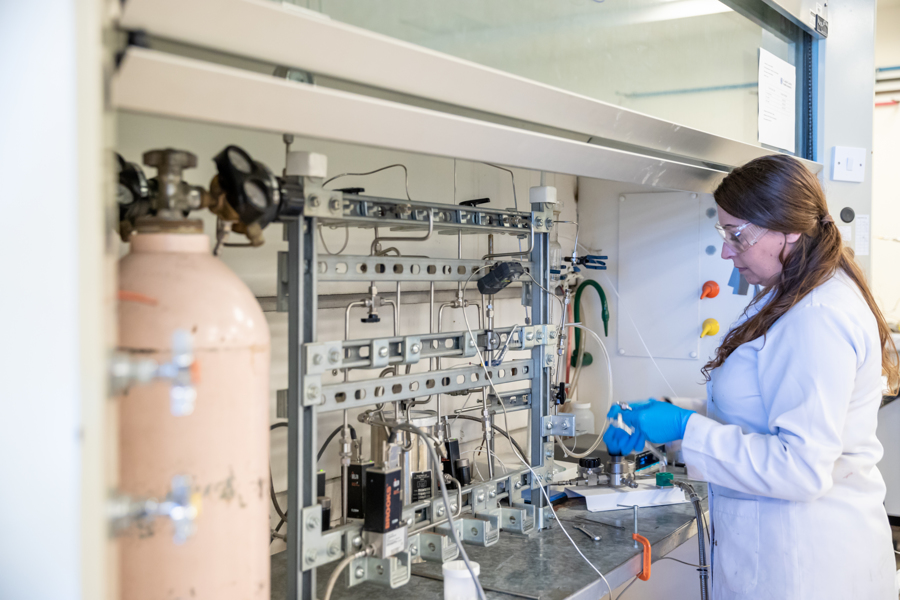

The Chemical and Petroleum Engineering department aims to provide world-class education and research in chemical and petroleum engineering, and related disciplines to produce engineers and future leaders who are capable of meeting or exceeding the needs and expectations in business, industry, and academia in Chemical and Petroleum education, research, and development. This is accomplished by providing appropriate mechanisms for technical exchange, collaboration, and employment of students. The department currently offers a BSc, MSc, and PHD degrees in Chemical and Petroleum Engineering.
The Chemical Engineering program at KU ranked in the top 150 in the world by the 2022 Academic Ranking of World Universities (ARWU) by subject.
The Petroleum Engineering program at KU ranked 8th in the world by the 2023 Quacquarelli Symonds (QS) World University Rankings by Subject – Engineering and Technology.
Chemical Engineers work in an industry, where physical transformation of matter takes place. Following is a list of industries they work:
Most Chemical Engineers work in offices, laboratories, or industrial plants. Others may spend time outdoors at construction sites and oil and gas exploration and production sites, where they monitor or direct operations or solve onsite problems. Not all chemical engineers wear hard hats, nor do they work solely in chemical plants. Although the specific responsibilities of Chemical Engineers vary among industries — and even within companies. Typical functions include:
On the other hand, the graduates of the Petroleum Engineering program will find various opportunities in National Oil Companies (NOCs), International Oil Companies (IOCs), and Service Companies. Accordingly, our graduates find jobs in ADNOC, Dragon Oil, and Sharjah National Oil Company (SNOC), Exxon Mobil, BP, Total Energies, and various service industries, such as Schlumberger, Baker Hughes, Halliburton, Al Masaood Oil Industry, etc. Also, the UAE has an initiative of in-country-value (IOC) by which local students are guaranteed a job in other IOCs and service companies. Along with the industrial organizations, academic institutes in the UAE and wordwide also look for talented students to apply for the graduate programs and research support positions.
Petroleum engineering graduates can be specialized in different jobs including:
The Chemical Engineering Department at Khalifa University is at the forefront of innovative and high impact, cutting-edge research activities. It hosts a variety of research programs in fundamental as well as applied research in various chemical engineering spectrums and field. Our research work have received various Abu Dhabi, UAE, GCC and international recognition. Our department family comprises of diverse, accomplished, internationally renowned and distinguished professor that are doing significant contribution from Khalifa university to Abu Dhabi’s 2030 vision of a sustainable knowledge-based economy. Focus areas of the department research are as follows;
These areas represent key domains in which we like to offer expertise and research solutions. Our ultimate goal is to achieve practicable and pragmatic solutions, to offer the potential of creating new knowledge, and make important gains against the challenges faced by our shareholders and partners. The following research themes & centers are represented by department faculty members: